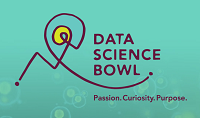
Booz Allen Hamilton, Kaggle and PBS KIDS launched the fifth annual Data Science Bowl. This 90-day competition challenges thousands of data scientists and researchers from around the world to apply the power of artificial intelligence to combat inequities in early childhood education (ECE). More specifically, participants will create AI algorithms using anonymous gameplay data from the PBS KIDS Measure Up! App, which helps young children build math skills, to better understand children’s unique learning styles. These insights will ultimately be used to pioneer new, personalized educational solutions and programs that adapt as children play to improve educational effectiveness of the games. Winners will share $160K in cash prizes.
Why Does this Matter?
Democratic presidential candidates and state administrators alike have made the benefits of ECE a focal point of national conversation as they look to design and fund better programs like Universal Pre-K. One study shows ECE can increase a child’s future earnings as an adult by over 25 percent. Yet, another study by Stanford psychologists shows development gaps between rich and low-income children begin in infancy, as early as 18 months, a disparity that has enormous implications for their academic, social and emotional development.
Over the last four years, more than 50,000 participants have developed and submitted over 114,000 artificial intelligence (AI) algorithms to improve everything from detection of lung cancer and heart disease, to monitoring ocean health and helping accelerate life-saving medical research as part of the annual Data Science Bowl®.
In partnership with PBS KIDS, this year’s competition will look at advancements in early childhood education. The results will lead to better designed games and improved learning outcomes, empowering children, parents, caregivers and educators across the globe with insights into how young children learn through media and which approaches work best to help them build on foundational learning skills. The 90-day Data Science Bowl competition will award winning participants with a share of $160,000 in cash prizes.
Research shows much of the most critical brain development in children takes place before they even reach kindergarten. Child development experts indicate it is during these first five years that children develop linguistic, cognitive, social, emotional, and regulatory skills that predict their later functioning in many domains. Yet early education approaches around the world vary in quality, accessibility, technique and engagement, leading to disparities in children’s learning and development. Further, access to effective early learning resources is critical, as research demonstrates that high-quality educational media can help support young learners.
“Early childhood education is a pivotal point in a child’s development that can provide them with a profound advantage and set the foundation for lifelong success,” said Dr. Josh Sullivan, senior vice president, Booz Allen Hamilton and leader of the firm’s analytics and AI business. “For the fifth annual Data Science Bowl, we’re excited to harness the collective power of people around the world to uncover how children learn and develop more beneficial and effective educational tools for children.”
The 2019 Data Science Bowl At-A-Glance:
The first five years of a child’s life are critical to their development as it’s when they learn and cultivate linguistic, cognitive, social, emotional and regulatory skills that predict their later functioning in many domains. Access to high-quality, effective early learning resources is critical during the early childhood developmental period and supporting education at an early age is also key for other long-term success factors such as increased qualifications, employment, and earnings.
Participants will be provided with anonymous gameplay data from the PBS KIDS Measure Up! app, which was developed as a part of the CPB-PBS Ready to Learn Initiative with funding from the U.S. Department of Education. They will be tasked with creating algorithms that utilize information about how players use the app to determine what they know and are learning from the experience, in order to discover important relationships between their engagement with educational media and learning. The insights gleaned from these solutions will help PBS KIDS and other organizations create new solutions, content and products that help ensure each and every user has the best chance to learn important skills, helping improve childhood learning access and achievement.
PBS KIDS is committed to creating a safe and secure environment that family members of all ages can enjoy. The PBS KIDS Measure Up! app does not collect any personally identifying information, such as name or location. All of the data used in the competition is anonymous. The Data Science Bowl and the use of data for this year’s competition has been reviewed to ensure that it meets requirements of applicable child privacy regulations by PRIVO. PRIVO is a leading global industry expert in children’s online privacy and delegated consent management.
“We’re thrilled to be a part of this year’s Data Science Bowl, which will harness the power of technology to help drive the future of learning,” said Lesli Rotenberg, Chief Programming Executive and General Manager, Children’s Media and Education, PBS. “PBS KIDS has long been an innovator in the educational media space, and through this year’s competition we look forward to gaining new insights into how to build games that help children thrive in school and life.”
“We’re excited to once again partner with Booz Allen to use the combined power of crowdsourcing and data science to affect change in an important field,” said Anthony Goldbloom, CEO of Kaggle. “This competition not only has the potential to impact the way we understand and approach learning but how we continue cultivating the data scientists of the future.”
To participate in the competition, please register and download the data set here.
Sign up for the free insideAI News newsletter.





Very Useful. Thanks for sharing 🙂 Raju kumar